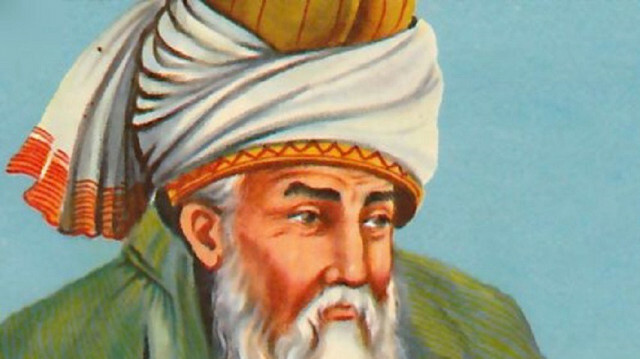
In an exclusive interview with Anadolu Agency, Omid Safi, professor of Islamic Studies at Duke University, answered questions on the works of Mawlana Rumi and how they are perceived today.
Anadolu Agency: Could you tell us a bit about the essence of Mawlana Rumi’s works; especially Masnavi?
Safi: The Masnavi was historically called “The Qur’an in Persian”, as a sign of how thoroughly filled with references to the Qur’an it is. It is one of the great masterpieces of Islamic literature, written by Mawlana Rumi, who was called the "offspring of the soul of the Prophet." Its main message is one of bringing humanity from the state of forgetfulness and brokenness to healing, wholeness, and becoming that "Insan-e Kamil", complete human being.
Q: How does "the West"s perception of Mawlana and Masnavi differs from "the East"?
Safi: There are of course many perceptions of Rumi in the West, and many in the East. As a whole, Western perceptions of Rumi place him in the tradition of individualized spirituality and the search for "happiness." Eastern approaches sometimes reach him through other Sufi approaches and wider Islamic teachings.
Q: We know that Rumi is very popular in the West, from pop-culture to the academy. Masnavi is among the best sellers. Why do you think this is the case? What do people find in Rumi’s works?
Safi: Modernity has promised much and delivered little in terms of actual joy, wholeness, and harmony in the world. People know somewhere in their own hearts that the way they live is out of touch, out of harmony, and they turn to Rumi for answers.
Q: On the other hand, Rumi is very much represented within the concept of “love” and “passion”. And, in some of Masnavi’s translations, we see a “secularization” of the context i.e. erasure its Islamic quotes. Is this really the case? How and why did we come to this point?
Safi: Many of the Western translators of Rumi downplay his Muslimness, his deep connection to Islam, sometimes out of a blatant Islamophobia, and sometimes through a mistaken impression that to make Rumi more universal they have to take him out of the particular of his context. Interestingly enough, they don’t make the same claim for Shakespeare, or Tao Te Ching, or Da Vinci.
Q: Recently we have seen a considerable increase in “self-love” “mysticism” and meditation apps for instance. People who “want to find themselves” somehow encounter Rumi. How much of them really got the essence of what Rumi says?
Safi: The ones that are about self-love that do not say anything about God are not likely to be beneficial. Remember that for Rumi, the self is ultimately something to be transformed, and not the ultimate channel of love. For real love, radical love as I prefer to call Eshq (Turkish: Aşk), we have to look to God.
I do offer a series of courses at https://www.illuminatedcourses.com which are intended to access those teachings of love, while continuing the groundedness of Mawlana in the Qur’an, in the being of the Prophet, and the earlier Sufi teachings.
Q: What should be done to represent Rumi’s work truly not just to the West but also to our own people?
Safi: A lot has been said about how Western appropriations take the Islam out of Rumi, and as we have seen, there is a lot of truth in that. I think for our own lives as Muslims, there is a parallel issue that we have to devote ourselves to equally fully: all too often, the Rumi, and all that Rumi represents has been taken out of too much of contemporary Islam. It’s the dimension of love, of poetry, of tenderness, of subtlety, of mysticism, of the spiritual, that whole realm we call Ihsan, that are lacking in modern Islamic thought and practice. We would do well to dedicate ourselves to invigorating these traditions, insha’Allah.













